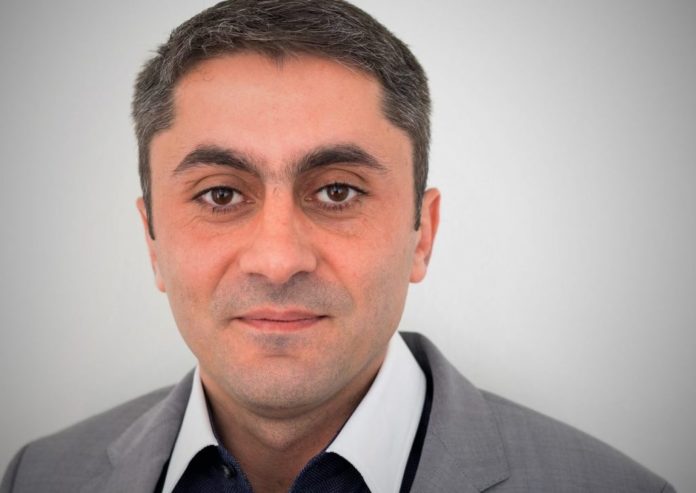SIVA Enterprises CEO Avis Bulbulyan on start-up costs, navigating state laws, and the importance of strategic partnerships.
You were an expert grower most of your life. You became a consultant in 2014. Why?
It was a combination of opportunity and just a natural progression from what I was doing. I started off in the cultivation sector, branched out into dispensing and manufacturing. Then in 2012, when Massachusetts became the first state to conduct a merit-based application process for a limited number of states licenses, my group ended up being the highest scoring applicant in the state and the only group to win the maximum three out of three licenses.
What’s your process when working with a client?
We really try to understand the client’s needs and execute their vision. To do that, we always lay the foundation first with education. Before we discuss licensing or management, we discuss the good, the bad, and the ugly of the industry. For licensing, we’ll go over prior states and discuss what worked and what didn’t in any given state’s program. We strongly encourage clients to apply their personal and professional experiences to this industry.
We don’t just charge the client, put together their package, and hand it over to them. We walk them through the process and really break everything down for them. As we get deeper and deeper into the project, and as the client’s confidence and knowledge build, we slowly start handing the reins over to them.
How important are strategic relationships?
Relationships in this industry are everything. This is one of those industries where you can’t just think about your sector. You need to understand the different sectors and, more importantly, how they interact with each other. You need strategic relationships across different sectors, across different industries, and across different disciplines.
Give us a snapshot of the capital investment required to open a nice dispensary.
If you’re setting up in a state where the license is limited and issued through a merit-based application process, you’re going to spend anywhere from three months to a year on just your application and somewhere in the neighborhood of $300,000-$500,000 on just the application. When you do win, your initial investment is going to cost you between $200,000 and $1 million, and that doesn’t include real estate. If you’re setting up in a state like California or Washington, the application costs are significantly lower, but your capital expenses will still be between $200,000 on the low end and upwards of $1 million.
As the industry matures, you’re going to see fewer and fewer of the small dispensaries that don’t have any focus on branding, patient flow, security, and image. I’ve been in shops that will give the best Apple store a run for its money. Dispensing is probably the least expensive operation that deals directly with the plant.
You also offer employee training, right?
Honestly, I think we do more “un-teaching” than we do teaching. The majority of the time, the employees were never trained beyond learning how to use the cash register, so they’ve kind of had to make it up as they go. The projects we set up from scratch are fairly straightforward because we’re working with a blank slate, so we set the standard from the beginning, educate the staff about the written operating procedures, and give staff the tools to succeed. It’s all about standardizing everything and giving employees the tools to shine and advance.
What sates are you most bullish on?
Hawaii just announced their [license] winners, and they’re going to be ramping up through 2017. I think Hawaii will come to be known as a “brand” state, and we’ll probably see some really great brands coming from the islands. Arizona has been flying low on people’s radar, but Arizona has been seeing one of the highest growth rates in any state. They’re about to issue more licenses, and it’s just a good stable market. As for California, that’s where the action will be. We have the biggest market nationwide, and [growth is] long overdue. It’s not going to be smooth, it’s not going to be without mistakes, but it’s going to be an amazing business culture here. I think once recreational passes, it will trigger the beginning of the end of prohibition.
When a client comes to you with $1 million to start a grow, what do you tell them?
That a million in a regulated market won’t get you far in the cultivation sector. Keep in mind you will be dealing with strict building codes, compliance issues, license fees, and a whole lot of random fees. On average, it’s going to cost operators around $150-$200 a square foot to set up an “efficient” operation.
In an unregulated market, yes, you could set up a 10,000-square-foot grow operation for under $500,000; less if you go greenhouse. Not when you have oversight, and especially when that oversight comes from departments that don’t have the experience to deal with it. It’s a very different game when you deal with regulations and oversight. Assuming you want 10,000 square feet of canopy, you’ll need a building about 13,000 square feet, minimum, to give you some back-office space, walkways, vaults, etc.
Let’s say you’re paying $2 a square foot. Factor in first month’s rent, last month’s rent, and a security deposit. You’re already at $78,000 just to get the keys to the building. Assume two months of construction (remember permits), assume another four months to get to your first harvest, and you’re in another $156,000 just on rent. Your lease just cost you $234,000, and I haven’t even mentioned a single other expense.
A LICENSE TO WIN
When you hire Siva, you seem to win, win, win.
*In Massachusetts, Siva submitted three applications and won three licenses.
*In Nevada, four out of five.
*In Illinois, they won two.
*Siva had the highest licensing score in western New York but missed the overall bid by 3.5 points.
*In Maryland, they’ve submitted seven applications on behalf of two groups.
 My best advice for clients is… To apply their personal and professional experiences to their business. Make it your own and put your personal touches on it. Operating a dispensary is not much different from operating a traditional retail business. The biggest difference is that you’re dealing with a lot of cash and a Schedule I drug. Cultivation is cultivation; photosynthesis is photosynthesis.
My best advice for clients is… To apply their personal and professional experiences to their business. Make it your own and put your personal touches on it. Operating a dispensary is not much different from operating a traditional retail business. The biggest difference is that you’re dealing with a lot of cash and a Schedule I drug. Cultivation is cultivation; photosynthesis is photosynthesis.
Embrace the changes that are coming, and think outside of the box. Remember: Taking advice doesn’t mean you’re not knowledgeable, and it doesn’t mean you’re not as smart. Learn about the other sectors, and more important, learn how the different sectors interact with each other. Create your own network and actually engage your network. Feed off each other and learn from each other.










